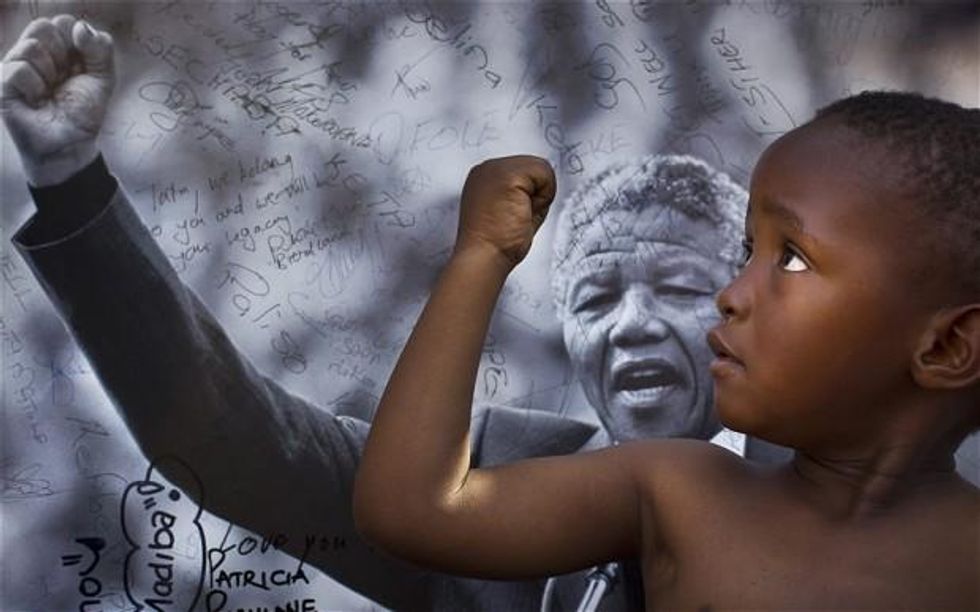Since my teens years, I have looked to the anti-apartheid movement as clear evidence that humanity - when it comes together and stands bravely and prays with its heart and sings with its soul - can overcome the greatest oppression. This alone would be reason enough to revere, mourn and celebrate one of this liberation struggle's great leaders, the late Nelson Mandela.
"Justice without vengeance. What a poignant and at one point unimaginable legacy to leave his nation and all of humanity."
But there was something even more remarkable about Mandela, and that was the capacity of this fierce warrior - flawed human being as he was - to stand for justice with such clarity and strength, and also hold so firmly that retribution against those who did him and his people wrong was not the answer. Even when he gained the upper hand, this man who had been imprisoned for so long, leading a people who had been brutalized for so long, stood as strongly for peace with white people as he did for freedom and justice for black people people.
As apartheid fell, South Africa could easily have slipped into civil war. But it did not. Instead of pursuing vengeance against their former oppressors, under Mandela's leadership and other brave leaders like him, the country instituted ground breaking Truth and Reconciliation Commissions that had those responsible for apartheid and its enforcement own up to their wrong doings without being brutalized in return.
For Mandela, this choice grew from a deeply personal revelation: "As I walked out the door toward the gate that would lead to my freedom, I knew if I didn't leave my bitterness and hatred behind, I'd still be in prison," the great freedom fighter famously said upon his release.
In its report on Mandela just hours after he passed, the BBC quoted FW de Klerk, South Africa's last white president, as saying Mandela had "a remarkable lack of bitterness." Mandela's greatest legacy, de Klerk said, "is that we are basically at peace with each other notwithstanding our great diversity, that we will be taking hands once again now around his death and around our common sadness and mourning."
Justice without vengeance. What a poignant and at one point unimaginable legacy to leave his nation and all of humanity. And it is the paradigm shift we so desperately need and I hope will one day soon learn to embody: how to stand strongly, fiercely even, for what is right - to defend without wavering against those who would attack people and the Earth - and at the same time to see the humanity in all people and to welcome everyone back into the village, even when they have done wrong.
It takes a great, great heart to do that. And only that can bring the deep and lasting healing and transformation we ache for as a species.
Thank you and blessings Madiba, you have shown us what is possible for humanity. We will miss you.




